- Home
- slideshows
- miscellaneous
- 9 common words you probably didn't know came from movies
9 common words you probably didn't know came from movies
Toast

My bad
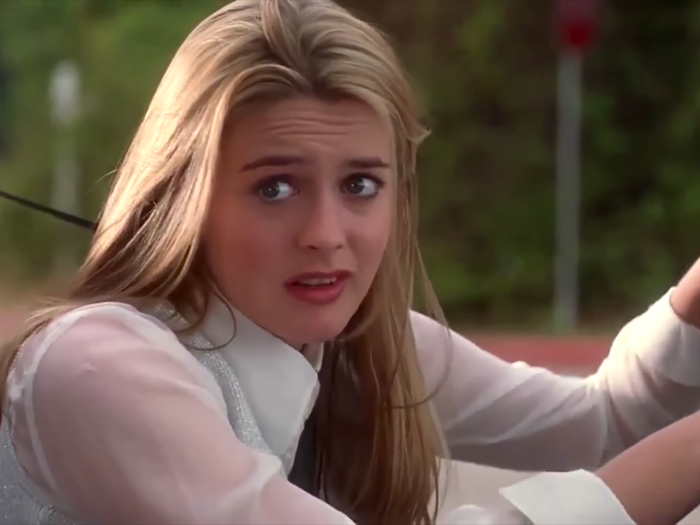
"Clueless" introduced millions of viewers to Valley Girl slang, including gems like "As if!" and "Whatever."
While both of those slang expressions enjoyed decades of documented use before "Clueless" came out in 1995, there's another popular phrase whose popularity is even more closely tied to the film: "My bad."
Despite its widespread popularity today, "my bad" was largely still a niche expression pre-"Clueless." The earliest print citations for "My bad" are from as recently as 1985, according to linguist Ben Zimmer, and it was used primarily in the world of playground basketball. By the end of the decade, the phrase was still uncommon enough that sportswriters felt the need to explain its meaning in newspaper columns.
"After making a bad pass, instead of saying 'my fault,' Manute Bol says, 'my bad.' Now all the other Warriors say it too," USA Today wrote in 1989.
While "Clueless" didn't invent "my bad," it was instrumental in bringing it into the mainstream, and provided many viewers with their first exposure to the phrase.
Bucket list
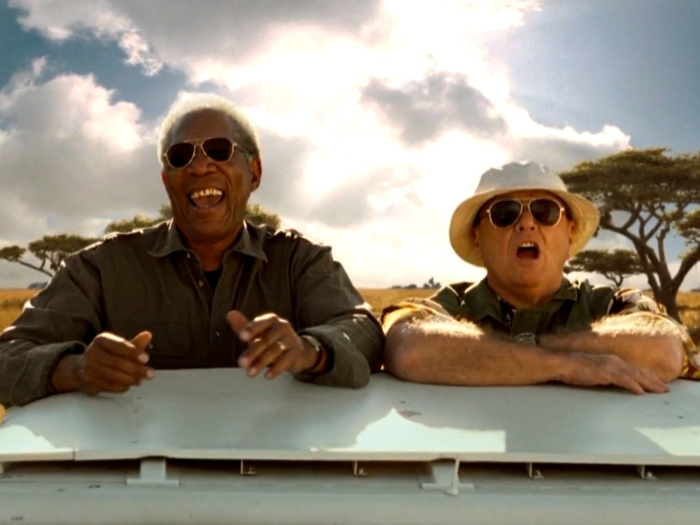
In 2007's "The Bucket List," two terminally ill strangers go to great lengths to fulfill each others' greatest wishes before they die, or "kick the bucket."
Many people incorrectly believe the phrase "bucket list" was in use before the film came out, but in reality, it was the film's screenwriter Justin Zackham who invented the term back in 1999, when he wrote up his own bucket list, according to linguist Ben Zimmer.
"The film’s release brought the phrase into common parlance, and, as a testament to how natural and idiomatic it sounds, many people assume the term must have long predated the movie," Zimmer wrote.
Once the phrase entered the English language, its meaning expanded to include a list of things to do before any deadline, such as the last day of school or the end of summer.
Gaslighting
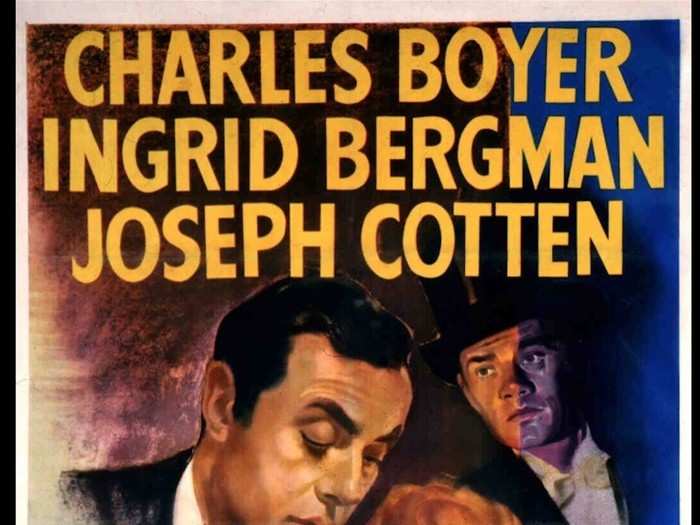
Gaslighting is the act of manipulating someone into questioning their own sanity.
It comes from the 1938 play "Gas Light," adapted into two successful movies in the 1940s. In "Gas Light," a husband attempts to drive his wife crazy by insisting that the gaslights in their house did not flicker, when in reality they did.
The 1950s saw some instances in print of "giving someone the gaslight treatment," and by the early 1960s, it was turned into the verb "gaslighting," according to the Chronicle of Higher Education.
The term saw an uptick in usage around the 2016 presidential election, when Donald Trump and other high-profile Republicans were accused in several media outlets of gaslighting the public.
The dark side
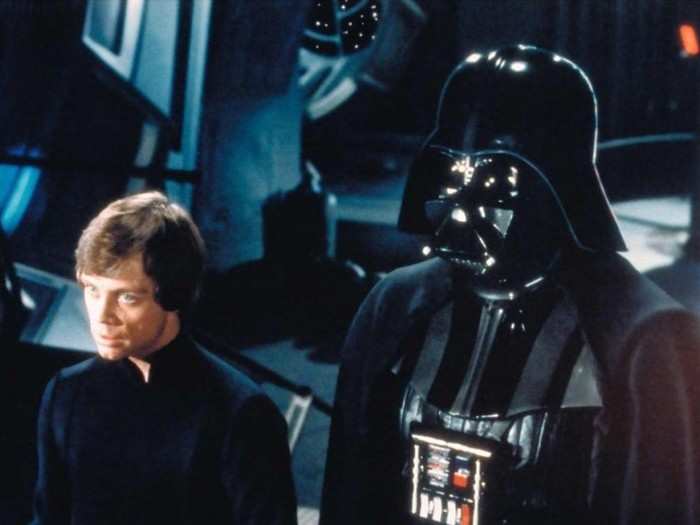
The "Star Wars" franchise has given us countless quotes and references that are deeply ingrained in pop culture.
Linguistically speaking, we can thank the first "Star Wars" film for popularizing the phrase "the dark side" to refer to "the negative or troubled part of someone or something that is usually concealed," as McGraw-Hill defines it. In the movie, Jedis are taught to resist the dark side of the Force.
In choosing the term, filmmaker George Lucas appeared to draw from elements of early Christianity, Taoism, and other religions that used light and darkness as a metaphor for good and evil.
Nowadays, just about everything can be described as having a dark side, like the music industry, social media, and the North Korean cheer squad.
Derp
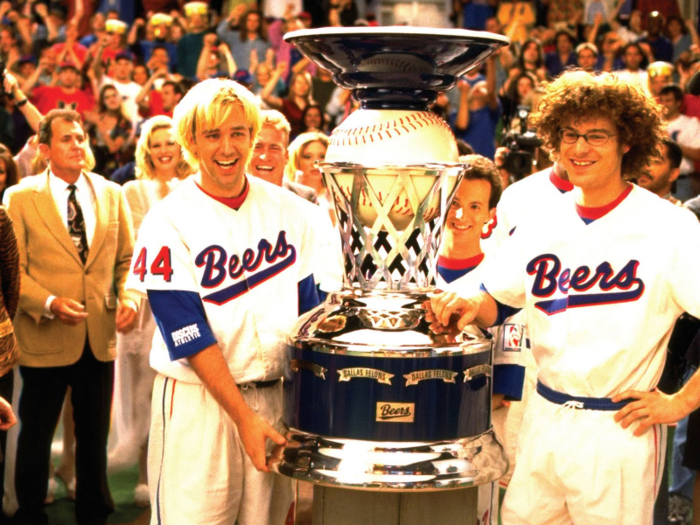
1998's "BASEketball" may not have been a cinematic masterpiece, but it did contribute one word to the English lexicon: "derp."
"Derp" is defined by Oxford — yes, "derp" is in the dictionary — as "a substitute for speech regarded as meaningless or stupid" that can be used "to comment on a foolish or stupid action."
The film, starring "South Park" creators Trey Parker and Matt Stone, features the first known instance of "derp" in this somewhat raunchy scene.
In the years that followed, Parker and Stone wove "derp" into several episodes of "South Park," but the word lay mostly dormant until around 2007, when it began popping up in online memes and internet comments, according to Know Your Meme.
"Peak derp," as New York Magazine put it, seems to have been reached around 2013, when journalists from Business Insider's Josh Barro to CNN's Jake Tapper and The New York Times' Paul Krugman all used variations of "derp" in columns and tweets.
The word has proved surprisingly versatile, functioning as an interjection, an adjective (derpy), a concrete noun (he's a real derp), an abstract noun (the age of derp), and even a verb (derping it up).
Catfish
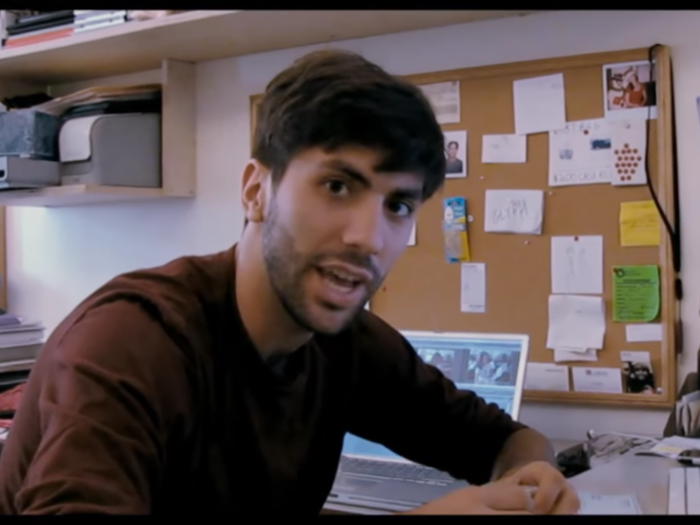
A catfish, in the modern sense, is "someone who pretends to be someone they're not" on social media, "particularly to pursue deceptive online romances," according to an Urban Dictionary entry.
The practice got its name from the 2010 documentary "Catfish," in which a man slowly learns that the woman he fell in love with online has actually been using a fake identity.
At the end of the film, one of the characters shares a story that gave the film its name: Supposedly, when people shipped live cod from Alaska to China, they placed catfish in the vats alongside the cod to keep the fish moving and prevent them from becoming mushy. "I thank god for the catfish because we would be droll, boring, and dull if we didn't have somebody nipping at our fin," he said.
Whether or not the story is true — and it's probably not — the term "catfish" and the associated verb "catfishing" stuck. The film spawned a spinoff reality show on MTV with the same name in 2012. And the term gained a boost in popularity in 2013 after it was revealed that Notre Dame football player Manti Te'o had fallen victim to a catfishing hoax.
MILF
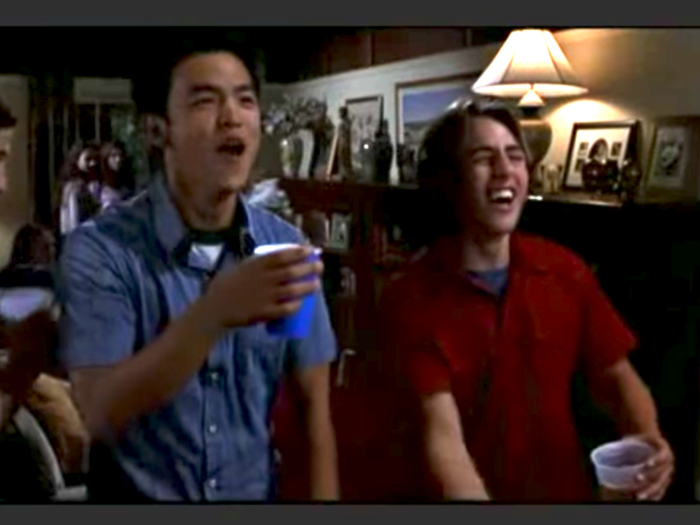
If you're unaware of what "MILF" stands for, feel free to look it up on Urban Dictionary at your own discretion.
The acronym was popularized by the 1999 comedy "American Pie," in which John Cho's character doesn't just use the term repeatedly, but even defines it for his uninformed friends. (Cho is officially credited as "MILF Guy #2.")
Although the term was used a small handful of times on internet message boards before the movie came out, it was indisputably "American Pie" that brought the term to the masses.
Yippie-ki-yay
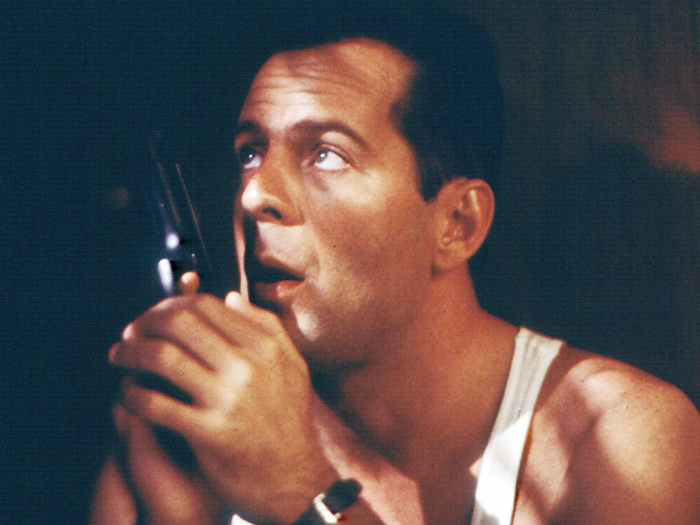
Twenty years ago, "Die Hard" provided us with one of the most legendary quotes in movie history: "Yippie-ki-yay, motherf----r."
While the back half of that line has a colorful history of its own, it's the "yippie-ki-yay" that appears to have broken linguistic ground. That's because although the exclamation harks back to cowboys of the old West, it hasn't always been phrased the same way.
A variation of "yippie-ki-yay" traces its roots back to at least the 1930s, when Bing Crosby channeled his inner cowboy for the song "I'm an Old Cowhand," singing "yippie yi yo kayah." Stan Jones used another variation, singing "yippie-yi-ay, yippie-yi-oh" in his 1948 song "(Ghost) Riders in the Sky," later turned into hits by Burl Ives and Johnny Cash.
As for "yippie-ki-yay," it provided the refrain for Gene Autry's "Cowboy Serenade" in 1942, but hardly popped up again until the release of "Die Hard" in 1988. The phrase was apparently so unfamiliar that, according to Bruce Willis, his signature line was nearly "yippie-tai-yai."
Despite the extensive list of expressions similar to "yippie-ki-yay," there's no doubt that "Die Hard" gave it the staying power it has today.
Popular Right Now
Advertisement